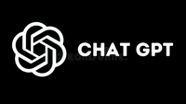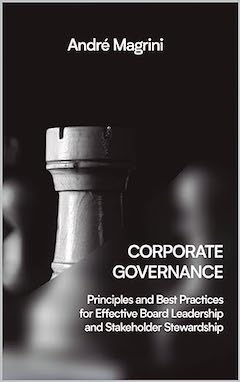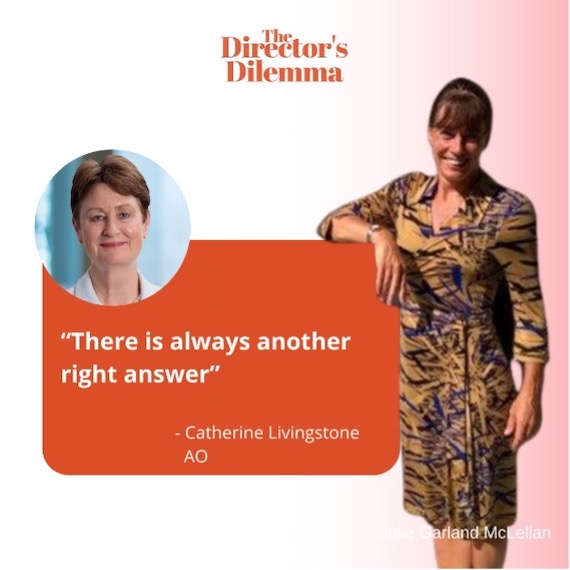|
|
|
|
|
|
|
|
|
Dear reader,
Welcome to The Director's Dilemma April 2024
Each month this newsletter looks at a real-life board scenario and considers a range of responses. The scenarios are de-identified to protect the individuals concerned. This month we consider succession in a family business.
Of course, scenarios in this newsletter are general, I work with boards and directors as a confidential mentor and help them beat challenges and seize opportunities. If you would like personalised service, please call me.
To read this email in a web browser, go to www.mclellan.com.au/newsletter.html and click on 'read the latest issue'. I hope you will enjoy the latest dilemma:

Lewis is Managing Director and Chair of his family's business. He has undertaken some governance training and, before he retires and leaves the business to his children, he wants to create a stable board that will guide the children and business into the future.
As a first step, Lewis discussed the idea with his board, who are all family members. He was pleasantly surprised that they were supportive of bringing on the company's first 'non-family' director. The discussion progressed to the desired attributes, skills, experiences and networks that should be sought and, again, the family were agreed.
Lewis then took the matter into a taskforce of himself and his son to look at the constitution and talk with their lawyer about the changes needed to create a non-family director, appointed by the family shareholder, alongside the existing directors who are all shareholders and collectively own more than 90% of the company's stock.
The lawyer asked if the new director would be given a vote or would be purely advisory. Lewis hadn't considered the idea of a board where some directors had votes and others didn't. He is keen to have a board of equals, especially as the family retains voting control.
On discussing with his family, he found that they preferred the advisory option.
What are the pros and cons of going forward with either model, and which would you suggest is best for Lewis' company ?
|
|
|
|
Robert's Answer

It's understandable that the concept of a non-voting director, who acts purely in an advisory capacity, could be an attractive proposition for a family company, in particular one which is appointing its first non-family member to its board. However, the concept of a non-voting director simply doesn't exist in our Corporations Law. A person who is appointed as a director has the same legal obligations and fiduciary duty to act in the company's interests, whether or not they have a right to vote. A director can't be "half-pregnant" in respect of these responsibilities and is exposed to the same potential penalties and personal liability. This situation exists regardless of whether a company's constitution allows for directors who have no or limited voting rights.
My advice to Lewis would therefore be to either consider appointing a full voting director (or potentially more than one, as a sole non-family NED can find it very challenging dealing with a family with limited governance experience); or alternatively to create an advisory board, where one or more qualified and experienced consultants act purely in an advisory capacity. It's been my experience that the latter option can work very well for families yet to appoint their first non-family board member.
An advisory board can help educate the family board regarding governance best practice, without exposing the advisors to the same legal obligations and risk associated with directorship. Many families find that an advisory board acts as a "bridge" in their governance evolution, until they are ready for a non-family NED. Care should be taken to frame the advisory board activities so that they are not seen as shadow directors.
Robert Powell is Chair of the Leadership Think Tank Australia, Director of The Women's Resilience Centre, and a founder and Director of Family Boards. He is also an ambassador for Family Business Australia. He is based in Sydney, NSW, Australia.
|
|
|
|
Julie's Answer

Lewis needs to think carefully about the purpose of his company. He founded it for a reason and, even if he has not been conscious of it, that purpose has been guiding his decisions. Was the company created to provide a shared focus and employment for the family, or to generate wealth and provide an income to the shareholders?
He then needs to consider the skills of his family board members. Do they have skills in managing a company of this size and stage of development that will help them to guide the management team? Do they have experience in operating the processes the company runs? Have they previously achieved something the company is working towards? Can they create or enhance supplier, staff and customer relationships? Do they understand governance and the role of the board, or do they act as managers and/or shareholders? If the result of this questioning is likely to be contentious Lewis should bring in outside expertise to create an independent assessment and help him draft a board development plan.
Then, and only then, is Lewis ready to create a skills matrix and bring in an outside (non-family) director to help strengthen the board.
My personal preference would be to bring in a director with voting rights as a deputy chair to Lewis with the aim of having that person step up to chair the board when Lewis retires. A good chair will ensure the board reaches consensus and all directors feel heard and valued; they won't 'control' the board. But that is my preference and Lewis must develop his own. He has built a great company. Now he needs to build a great board.
Julie Garland McLellan is an experienced non-executive director and board advisor based in Sydney, Australia.
|
|
|
|
Gerard's and Albert's Answer
 
Lewis faces a dilemma common in parts of the world where the 1–tier board model is the custom. The problem would not have occurred in the Rheinland model in Europe, where they operate a 2–tier model in the majority of the countries.
In the end, the outcome will be about playing with the majority of votes as owners.
The pros: the new non-family member might accept the role easier, when he or she is taken seriously because they have a vote. The board might also have more respect for his or her advice.
The cons: lack of voting rights might give him or her more the flavour of an independent advisor rather than accountable board member. This might start discussion around difficult subjects earlier but struggle to see that carried through into action.
The family wants to keep the majority of votes on the board. The entrance of one non-family member vote in this board will probably not change that majority of votes held by the family members. Lewis should check his constitution: Does the Chair – being a non-executive director - have two votes? Being a Chair and a family shareholder?
In addition, governance guidelines suggest non-executive board members should have a majority vote. If the non-family member having a vote changes that vote ratio, it can be corrected by, for example, introducing multiple votes for non-executives. Research reveals that the trend in boards is to have more independent non-executive board members. It has a strengthening effect on companies, better governance, and better results.
Gerard Lentz is a board member the Netherlands Guild of Family Business specialists (NGFB). He is based in Houten, Utrecht, Netherlands.
Albert Froom is Managing Partner at The Leaders Trust. He is based in The Randstad, Netherlands.
Editor's note - This answer was a collaboration between Gerard and Albert. (Good directors have networks they can turn to for confidential advice when they face a tricky issue.)
|
|
|
|
Chat GPT's Answer

Lewis is embarking on a crucial journey in transitioning his family business into a stable, professionally governed entity. As he navigates the decision-making process regarding the role and voting rights of the new non-family director, careful consideration of the pros and cons of each option is essential.
Pros and Cons of Each Model:
1. Equal Voting Rights:
Pros:
-
Fosters a sense of equality and inclusivity among directors.
-
Each director's vote carries equal weight, promoting transparency and fairness in decision-making.
Cons:
-
Potential for deadlock in decision-making if the family members vote as a bloc, leaving the non-family director marginalized.
-
Could lead to conflicts of interest or power struggles between family and non-family directors.
2. Advisory Role for Non-family Director:
Pros:
-
Maintains family control and preserves the familial dynamics within the board.
-
Reduces the risk of power imbalances or conflicts between family and non-family directors.
Cons:
-
Limits the influence and decision-making power of the non-family director, potentially hindering their ability to contribute effectively.
-
May create a perception of tokenism or lack of genuine commitment to professional governance standards.
Recommendation:
Given the familial context and the family's preference for maintaining advisory status for the non-family director, adopting the advisory model seems prudent for Lewis' company. This approach respects the family's desire to retain control while benefiting from the expertise and perspective of an external professional.
However, it's essential to establish clear expectations and mechanisms for incorporating the non-family director's input into the decision-making process to ensure their meaningful contribution to the board's deliberations. Additionally, ongoing communication and transparency will be key to fostering a harmonious and productive board environment amidst the diverse perspectives and interests involved.
Chat GPT is an artificial intelligence (or a pattern recognition, data analysis, and prediction engine). It resides in Cyberspace.
|
|
|
|
Book review - Corporate Governance: Principles and Best Practices for Effective Board Leadership and Stakeholder Stewardship Kindle Edition by André Luiz Magrini

This book covers topics including board structure, decision-making processes, risk management, and stakeholder engagement. I particularly enjoyed the case studies and real-world examples that bring the governance strategies and their outcomes to life.
This is a short book with a broad scope so not the detailed 'how to' manual that some directors might like (I wonder if Andre is going to publish that next or if he will be covering the how in his consulting and courses). A great thought starter and lead-in to more deep reading on topics of interest. If you didn't find something in this book that worries you about at least one of your boards, then you didn't read it carefully enough
Available at Amazon.com
Where is Julie, where has she been, and what is she doing?
Thank you to everyone who came and said 'Hello' to me at the Australian Institute of Company Directors' Governance Summit two weeks ago. It was a very enjoyable two days with much food for thought gained from both my conversations with people during the breaks and the onstage sessions. Particular highlights were Catherine Livingstone's keynote address, Joe Longo's four excellent questions for directors, Pamela Hanrahan (as always) with practical advice on regulatory developments, and a great session on AI from Dr Ayesha Khanna.
Masterclass on Writing Better Board Papers – now available online. You can book your seat at: https://www.boardpro.com/better-board-papers-apr-9. Recordings will be available for people who have to miss a session. If you would prefer an in-house workshop for your executive team, please reply to this email and I will gladly schedule one for you.
Video resources - I post short video insights on LinkedIn. They disappear after a few days. You might like to visit (and please subscribe to) my YouTube channel to see the videos whenever you want to watch them. Let me know if there are any topics you would like to see addressed.
Board review - Every board - just like every other team - needs to measure its performance if it hopes to improve. When your board next needs to conduct a performance evaluation or a governance review, please remember that I would be delighted to help. If I can help, please contact me at julie@mclellan.com.au.
Inspirational quote for April

This was the most quoted statement at the AICD Australian Governance Summit – it came from Catherine's opening keynote address. I recommend anyone to go to the AICD website and read the transcript whilst it is available. If your board stops as soon as they have found an appropriate response to any situation then you are at risk. There is always a number of responses and your job is to keep asking until you uncover the answer that best suits your company's needs.
A note on names - A few readers have asked me where I find the names for the protagonists in each case study; I 'borrow' them from people I meet or things that I read. The name Lewis, an English variant of Louis, is of German origin and means "renowned warrior" or "famous in battle." It has many variations in Latin, French, and Gaelic languages that all point to the same sentiments of strength and courage.
This newsletter - If you have any ideas for improving the newsletter please let me know. If you are reading a forwarded copy, please visit my website and sign up for your own subscription.
Suggestions for dilemmas - Thank you to all the readers who have suggested dilemmas. They are greatly appreciated. I will answer them all eventually. I could not write this newsletter without your help and without the generous help of all the experts who respond each month to the case studies.
Be a contributor - if you would like to attempt a response to the dilemmas for publication you will be most welcome. Simply reply to this email and let me know. I am always on the lookout for new talent from around the world so please reach out if that sounds like something you could do. I am also always grateful for the generous sharing of the current and past contributors. I couldn't create such an engaging newsletter without their help.
Spread the word - if you have read this far, I assume you enjoy the newsletter – please help me to reach more directors by sharing the newsletter with your board colleagues and suggesting that they also become subscribers or by posting a recommendation on my LinkedIn page to let others know that you find the newsletter valuable.
Let's connect - I use LinkedIn to share information about boards and directorship with my friends and acquaintances. If you use LinkedIn and we are not yet connected I will welcome a connection from you. You can find me at linkedin.com/in/juliegarlandmclellan.
Farewell until the next issue due 1 May 2024. I look forward to greeting you again then.
Enjoy governing your companies, it is a privilege!
Best regards,
Julie

Main photo by Vlada Karpovich from Pexels.com
Quote Illustration by Keitchy Sanchez for Julie Garland McLellan
Disclaimer: The opinions expressed above are general in nature and are designed to help you to develop your judgement as a director. They are not a definitive legal ruling and do not constitute legal advice. Names and some circumstances in the case study have been changed to ensure anonymity. Contributors to this newsletter comment in the context of their own jurisdiction; readers should check their local laws and regulations as they may be very different.
Privacy: I am privileged to have your contact details and keep them as safely as possible. I will alert you if they are ever accessed by any unauthorised person. The technical staff at ayuda help with publishing and issuing the Director's Dilemma and have access so they can send the newsletters to you. I do not sell your details to anyone; they are kept only for the intended purpose - sending you this newsletter and helping to build the judgement of company directors by providing a safe way to consider potential responses to real life events.
|
|
|
|
|
|
|









